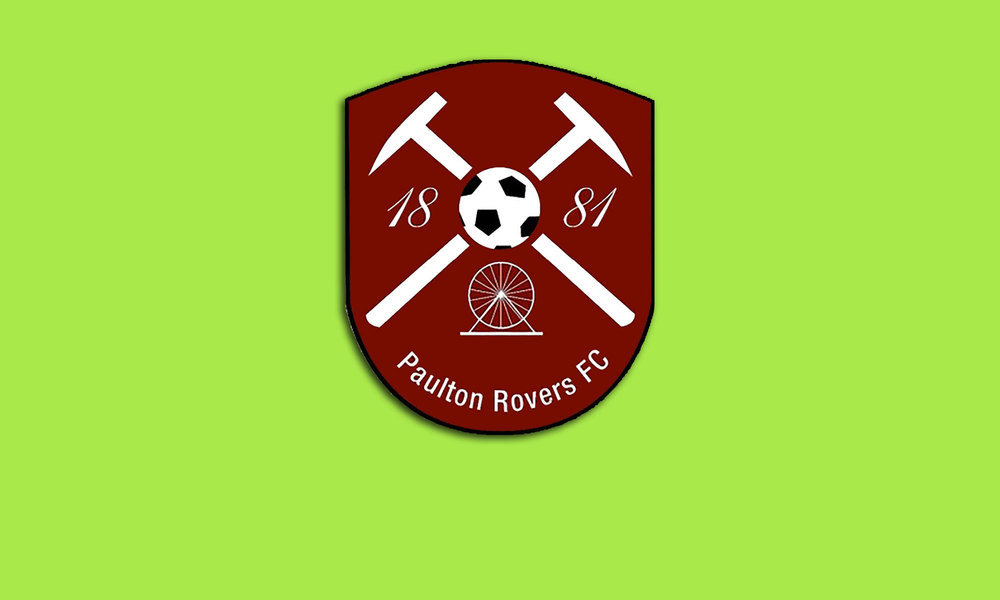
Paulton Rovers are an old club, formed back in 1881. However, it`s fair to say they had a stop-start beginning, not playing competitive until 1900 when they entered the Western League.
Due to the two World Wars and the occasional season off, Rovers played mainly in the Western League`s second tier and have had five spells in the league, although they never won the title.
They have though won the Somerset Senior Cup on twelve occasions, with the last time being back in 1974/75.
Rovers` best season in the Western League was undoubtedly 2003/04 when they and Bideford started the campaign as favourites for promotion – and both proved the bookmakers right.
Paulton indicated early on that they would be seeking membership of the realigned Southern League for 2004/05 and set out to prove their worth.
A club record run in the FA Cup gave the club national recognition – they went out at the Fourth Qualifying Round stage to Isthmian Premier side Hornchurch.
With Bideford deciding to stay in the Western League, the door was open for Rovers to realise their dreams and take the step up to the Southern League after finishing runners-up and having improved their facilities to qualify for the step up.
It was under the management of Darren Perrin and Mike Kilgour that Rovers achieved promotion but, after finishing just outside the play-offs in their first season at Step 4 level, Perrin left to take charge of Chippenham Town.
In July 2005, Andy Jones stepped up from being the reserve team boss to take over from Perrin and after a 17th place finish in his first season in charge, led the team to runners-up spot in 2006/07, only to lose 4-1 in the play-off semi-final at home to a Taunton Town side who had finished fifth and only scraped into the top five on the final day.
Jones`s team narrowly missed out on a play-off spot the following season and, having felt he had taken the club as far as he could, he stepped down and former club captain Mark Harrington took over.
The midfielder had two spells with Rovers, re-joining in 2003 from Chippenham.
A former Bristol Rovers trainee, he had his first period at Winterfield Road after leaving the Gas in 1995 and also played in the Conference and then Southern League for Bath City before joining the Bluebirds.
Harrington, however, was only in charge for one season, and his assistant, Nick Bunyard, agreed to become manager for the 2012/13 season.
Bunyard had two spells at Winterfield Road as a player having been originally signed by Darren Perrin from Frome Town and then followed his manager to Chippenham, before re-signing for Rovers.
He also played for Forest Green Rovers, Weston-super-Mare, Bath City and Mangotsfield United.
In 2013/14, Bunyard led Rovers to fourth and into the play-offs again.
And, having defeated Tiverton Town 3-1 in the semi-final when down to nine men, Rovers defied the odds to win the play-off final at Penydarren Park against Merthyr Town 2-0 in front of a crowd of 2,201, and thus gain promotion to the Step 3 Southern Premier Division – the highest level the club had even played at.
The team found the step up difficult at first, but an incredible unbeaten run after Christmas saw Rovers finish a more than creditable tenth place.
During the summer of 2015 though, Bunyard resigned for personal reasons and the club appointed Richard Fey.
A former goalkeeper like his father, respected ex-Clevedon Town manager Steve Fey, Richard was on Bristol Rovers books as a youngster before playing for the likes of Bristol Manor Farm, Mangotsfield United, Bitton, Chippenham Town, Bridgwater Town, Frome Town, Bath City, Gloucester City, Clevedon Town and Rovers in non-League football.
He managed Bridgwater, taking them to a respectable tenth and twelfth place in the Southern League South & West Division - their highest two positions for eight years - and was previously assistant manager at Chippenham.
Before that he was in charge at Western League side Bitton for two and half years and was runners-up two years in succession.
But his spell in charge of Paulton Rovers was a brief one and he stepped down in October 2015 after failing to win any of the first 14 games of the season.
He went on to take charge of Street – leading them to win the Western League Premier Division and finishing eighth in their first season in the Southern League, and then took over at Rovers` league rivals Melksham Town in May 2019 where he remains.
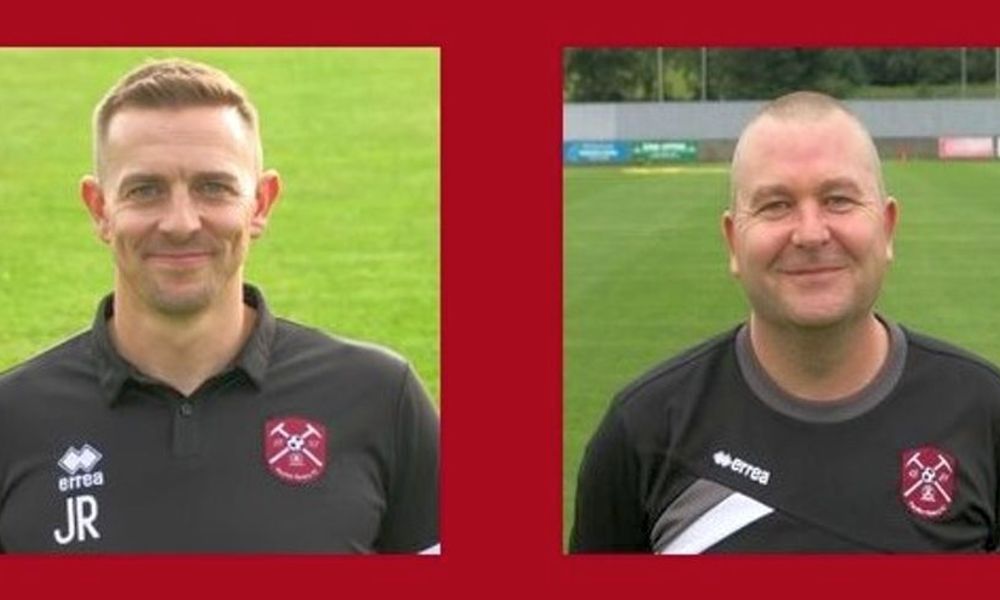
John Rendell & Paul Tovey
Rovers never recovered from that poor start and finished bottom and found themselves back in the Division One South & West and currently Division One South.
The man in charge now is yet another former player in
He went on to play for Paulton where he was involved in the 2004 promotion season into the Southern League and then gained promotion in similar fashion with Bitton and has also had spells with Cinderford Town, Mangotsfield United and Yate Town.
He re-joined Paulton as manager in June 2017 after being on the coaching staff at Yate.
The name Tovey is certainly a familiar one for supporters of Paulton Rovers.
Paul Tovey is a former Bristol Rovers player who enjoyed spells with Sligo Rovers, Bath City, Yate Town and Rovers as a player.
An experienced campaigner whose footballing know-how is valuable, he is currently John Rendell`s assistant.
Stuart Tovey was a product of Paulton's youth side.
He went on to play over 200 first team games for Rovers and had short spells with Welton Rovers, Larkhall Athletic and Chippenham Town.
He is currently on the books at Rovers` league rivals Bristol Manor Farm.
Andy Catley served Rovers well in midfield for several years.
He spent two years as a trainee with Southampton before leaving the full-time game and having spells with Welton Rovers and Forest Green Rovers.
He signed for Rovers in December 2001 from Chippenham Town and later returned to Welton Rovers and also turned out for Corsham Town.
Striker Graham Colbourne signed for Rovers at the same time as Andy Catley.
However, he had actually started his playing days with the club, coming through the youth ranks before moving to Bath City in February 1997.
In May 2001, Colbourne left Bath having scored 63 goals in his 185 appearances.
He overcame a serious knee injury sustained in December 1999 which for a time threatened his career but left because he didn`t want the travel involved at Southern Premier Division level and signed for Western Leaguers Welton Rovers before re-joining Rovers.
He eventually returned to Welton Rovers as assistant to Mark Harrington.
Jon Ashton was a trainee with Plymouth Argyle, and signed professional forms in July 1997.
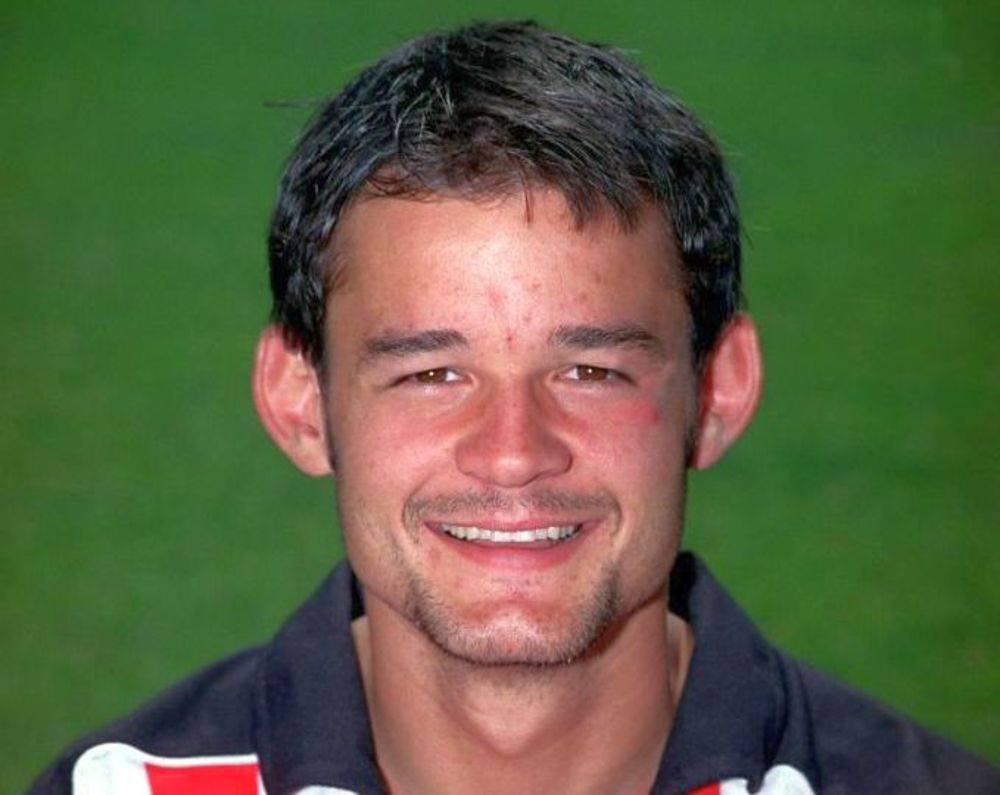
Jon Ashton
He went on to make 34 league outings for Argyle, before being released on a free transfer, when he then joined Exeter City in July 2000.
He made his Grecians’ debut in the opening game of the season at St James’ Park - a 2-1 defeat at the hands of Cardiff City.
Although he had a run of matches early on, he eventually lost his place and apart from a couple of other first-team opportunities, had to be content with reserve team football.
After 13 games for the Grecians, he was released at the end of the 2000/01 season and signed for then-Conference side Hayes.
He was released in March 2002 and joined Dulwich Hamlet before returning to the West Country and played for Bodmin Town and Bridgwater Town before joining Paulton Rovers in the summer of 2004.
After two seasons with Rovers, he was forced to retire due to an Achilles injury aged 26, moving to work in the financial services sector.
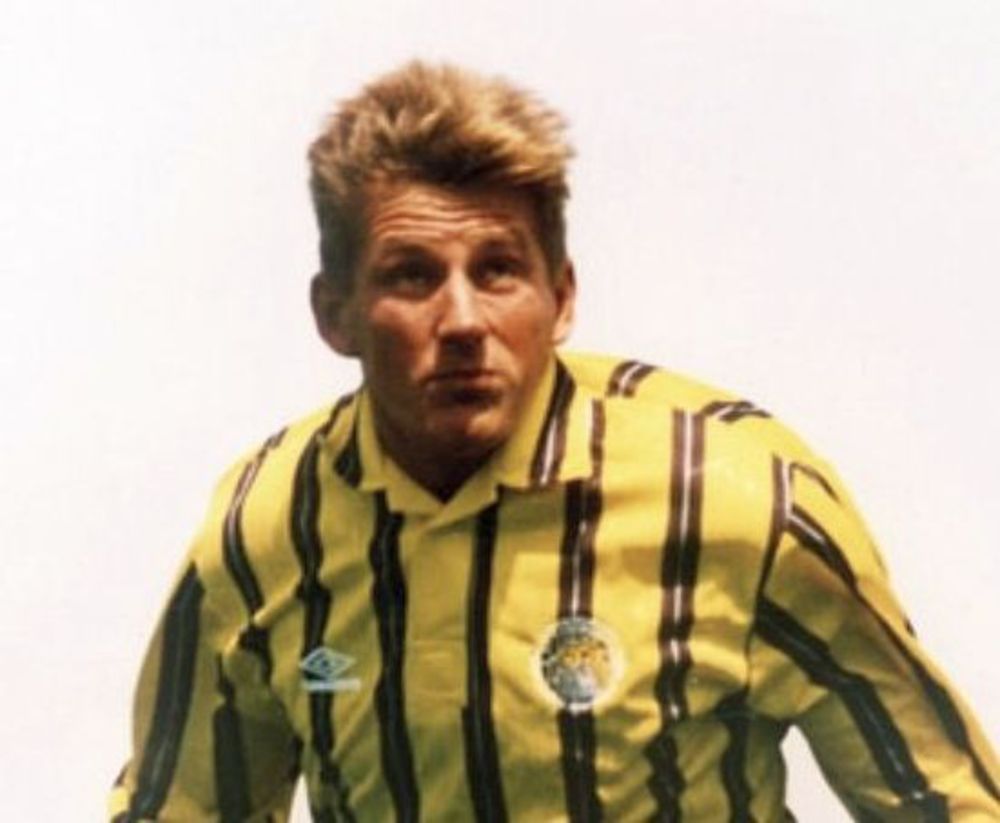
Mike Kilgour
For a defender to have the nickname `Killer` suggests he was a tough opponent! That was how Mike Kilgour was known throughout his playing career.
In his second spell at Trowbridge, he passed the 100 appearance-mark when in a Wiltshire Floodlight Cup match against Chippenham Town on December 15th, 1992.
Ian Hedges was a defender originally with Bristol City as a youngster and then Newport County before joining Western League side Bristol Manor Farm.
In 1987, he moved to Southern League Gloucester City and went on to play 80 times for the Tigers before being signed by Harry Redknapp at AFC Bournemouth for £25,000 at the end of October 1990.
Redknapp snapped him up ahead of interest from Leicester City, Southampton, Swindon Town and Oxford United.
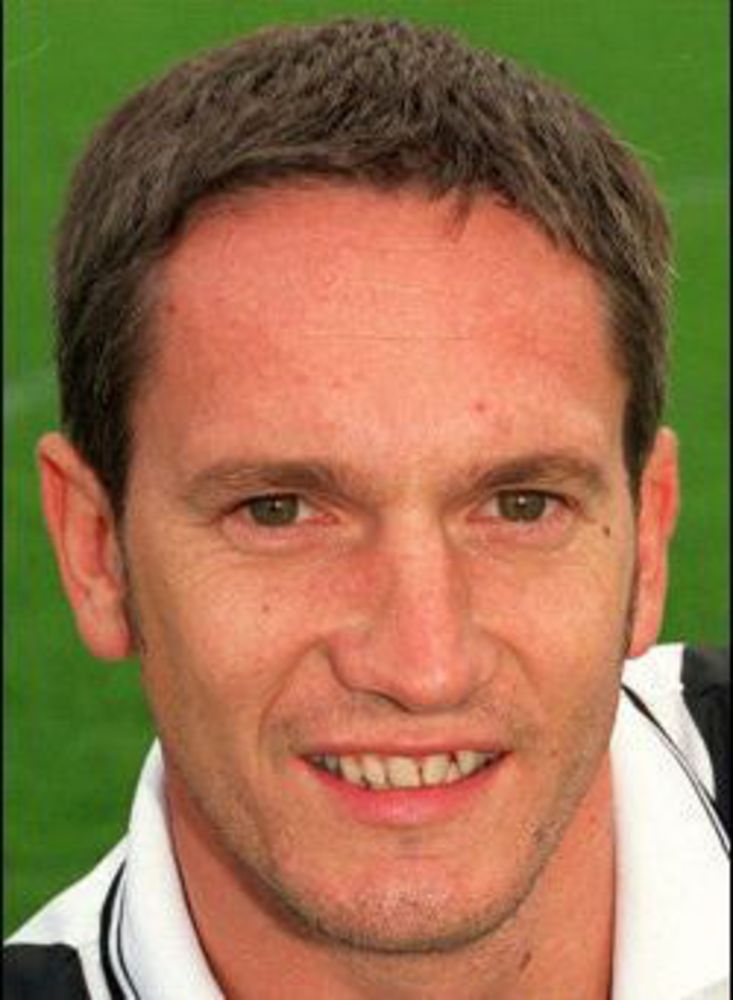
Ian Hedges
He failed to make the grade at Dean Court and following a successful loan spell with Bath City, he made his move permanent in a £10,000 transfer in 1991 and spent seven years at Twerton Park where he was twice named player of the season and scored 12 goals in 286 appearances, mostly in the Conference.
At the end of the 1997/98 campaign, he left the Romans to link up with Forest Green Rovers, who had just won the Southern League title, where he stayed for four years.
He signed for Paulton Rovers in 2002 when they were still in the Western League and had four seasons at Winterfield Road, including a spell as caretaker manager and player/assistant manager.
Defender or winger Kris Sage possessed a cultured left foot.
He first came to prominence in the Southern League with Bilston Town and then Bloxwich Town whilst studying at Wolverhampton University.
He went on to play for Hallen in the Hellenic League and then joined Southern League Evesham United in 2002.
He left for Bitton and later played for Henbury in the Gloucestershire County League and is currently head of business development and marketing at Idhammar Systems in Bristol.
Don Gillies began his career as a forward but moved into a right-back role.
He started out in Scottish Highland League football with Inverness Clachnacuddin before signing for Greenock Morton in October 1971.
He scored 23 in 47 games for The Ton and was capped by Scotland at under-23 level before being signed by Alan Dicks for Bristol City for a £30,000 plus Steve Ritchie going the other way in March 1973.
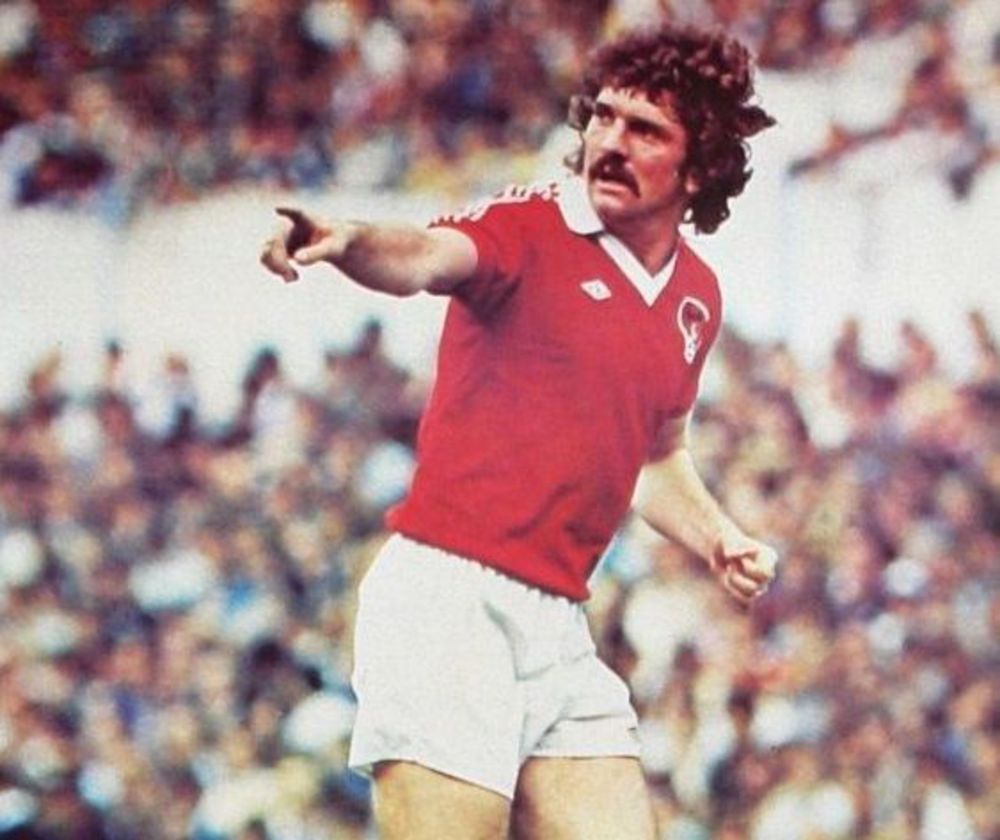
Don Gillies
He spent seven years at Ashton Gate, helping them to secure promotion to the top-flight in 1976.
He also won the Anglo-Scottish Cup with City in 1977/78.
After making 244 appearances with 30 goals, he disappointed City fans by making the move to fierce rivals Bristol Rovers, managed then by his former team-mate Terry Cooper, for £50,000 in June 1980.
He played 59 times for The Gas and then signed for Western League Paulton Rovers in late 1981.
Early in the 1982/83 season, he moved to Southern League side Gloucester City and then had two spells with Trowbridge Town, sandwiched by time in Cyprus with Anorthosis.
He returned to play 28 times for Yeovil Town before winding down his playing days in the Somerset Senior League with Clutton and then with Western Leaguers Bristol Manor Farm.
He ran his own fruit and vegetable business, but now lives in Wells, Somerset, and is an account executive for a wholesale fruit and vegetable company.
Playing for Rovers in their early days in the Western League was Laurie Banfield.
Paulton born and bred, the left-back started his career with Rovers in 1908 and was then snapped up by Second Division Bristol City in 1911.
He made over 259 Football League appearances in the years before and after the First World War.
He helped City to win the Third Division South title in 1922/23 and had also been an FA Cup semi-finalist in 1920.
He later took over as player-manager of then-Devon League side Ilfracombe Town.

Ashley Barnes
Current Burnley striker Ashley Barnes began his playing days with Rovers.
He was a prolific goalscorer in the Southern League as a 17-year-old and he admits to owing a great deal to the grounding he received whilst at Winterfield Road.
He had an extended trial with then-Championship side Plymouth Argyle in March 2007, and sufficiently impressed to be awarded with an eighteen-month contract, having scored several goals for the reserve team.
Barnes found first-team opportunities hard to come by at Argyle and was loaned out to Oxford United and then Salisbury City.
He enjoyed further loan spells with Eastbourne Borough in 2008 and Torquay United two years later, before subsequently joining then-League One side Brighton & Hove Albion, initially on a season-long loan, scoring on his debut against Tranmere Rovers.
In July 2010, Barnes joined the Seagulls on a permanent basis for an undisclosed fee, signing a two-year contract.
In April 2011, he scored the decisive goal in a 4-3 home victory over Dagenham & Redbridge, which confirmed Brighton’s promotion to the Championship.
He was then Brighton’s leading scorer in 2011/12 with 14 goals in all competitions to help secure their place in England’s second tier and scored a total of 53 goals in 170 appearances for the Seagulls before making the move to Burnley.
The 2017/18 season was a major success for Barnes as the striker hit double figures, with 9 goals in the Premier League helping the Clarets to their best league finish for 44 years.
His run of 6 goals in 8 games from the end of February was vital to Burnley's success in securing a place in the Europa League for 2018/19 and saw him join Sam Vokes as the only Claret to score in four Premier League games in a row.
His stunning overhead kick at West Bromwich Albion was a goal-of-the-season contender and in March 2018, Barnes' enduring value to the squad saw the striker sign a new contract running until June, 2021.
After a slow start to the 2018/19 season, Barnes went on to enjoy his best year yet in a Burnley shirt as a talisman for the team.
His 12 Premier League goals brought him his highest tally as he continued to be the scourge of top-notch defences.
Thirteen goals in total made him joint leading scorer with Chris Wood, with Barnes' 9 goals in the second half of the season pivotal to Sean Dyche's side staying in the Premier League for a fourth successive season.
Defender Aaron Brown was born in Bristol and joined Bristol City as a trainee, turning professional in August 1998.
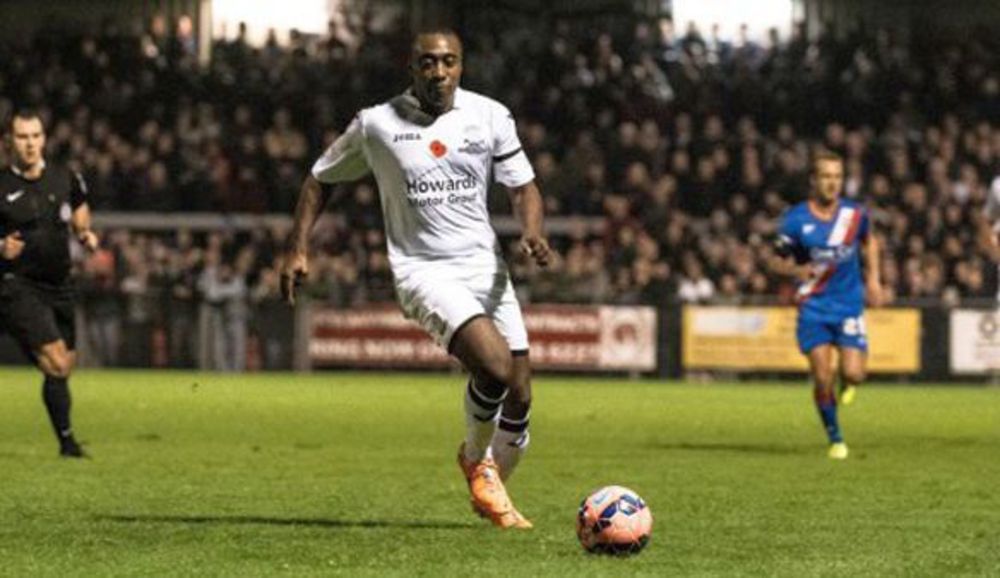
Aaron Brown
He was a popular player with the City faithful but after several seasons at Ashton Gate, left to further his career at Queens Park Rangers in July 2004.
His time at QPR was plagued with injury and after loan spells at Torquay United and Cheltenham Town he joined Swindon Town in November 2005.
He credits Swindon manager Iffy Onuora with saving his career, but he was unable to save Town from relegation when, ironically, they needed to win at Ashton Gate but could only manage a draw.
In 2007, Brown was released by new Town boss Paul Sturrock and he eventually joined Gillingham and remained there for one season before spells at Lincoln City in League Two and Wrexham and Darlington in the Conference, playing in the Quakers’ FA Trophy Final success in 2011.
He joined Bath City in August 2012 and played over 70 games, scoring 2 goals, before signing, briefly, for Hungerford Town in May 2014.
His next move was to then-Conference South side Weston-super-Mare, where he made 32 appearances in 2014/15.
Brown joined Paulton Rovers as player-coach in June 2015, working alongside manager Richard Fey and player/assistant manager Nathan Rudge.
Right-back Trevor Jacobs was born in Bristol and was one of a rare breed of players to have enjoyed lengthy careers with both Bristol’s professional clubs.
Jacobs’ début for Bristol City, for whom he signed professional forms in July 1965, came at Rotherham United in November 1966, when he conceded an own goal as City trailed 3-0 by half-time, only to stun the Millmoor crowd by fighting back to earn a 3-3 draw.
He was to appear in 131 games for City, scoring 3 times and played 4 times for Plymouth Argyle, whom he joined on loan in September 1972.
A League Cup semi-finalist at Ashton Gate in 1971/72, he moved across the city in May 1973.
It was a good time to arrive at Eastville, for Rovers embarked on a 32-match unbeaten run, defeated Brian Clough’s Brighton & Hove Albion 8-2 at the Goldstone Ground and secured promotion from Division Three.
Jacobs played a critical role in all this, for the defence, primarily Jim Eadie in goal with Lindsay Parsons alongside Jacobs at full-back, was noted for keeping clean sheets and Jacobs even popped up at the other end, scoring twice in the 3-0 home victory over Blackburn Rovers in March 1974.
His defensive qualities enabled Rovers to enjoy a season of enormous success but after 3 goals and 83 matches in Rovers’ colours, Jacobs could not make the impact he hoped in Division Two and soon retired from professional football.
From 1976 he played in the Western League for Bideford, Frome Town, Clevedon Town and Paulton before coaching Bristol Rovers’ under-13 side from July 1983 and, from July 1998, the under-13 and under-14 sides.
He ran the Horseshoe Inn at Shepton Mallet and the Baccy Jar at Whitchurch, before spending twelve years until his retirement in 1998 as a postman.
He passed away in January 2014 and the age of 67.
A team-mate of Jacobs` at Bristol Rovers and Paulton was goalkeeper Dick Sheppard.
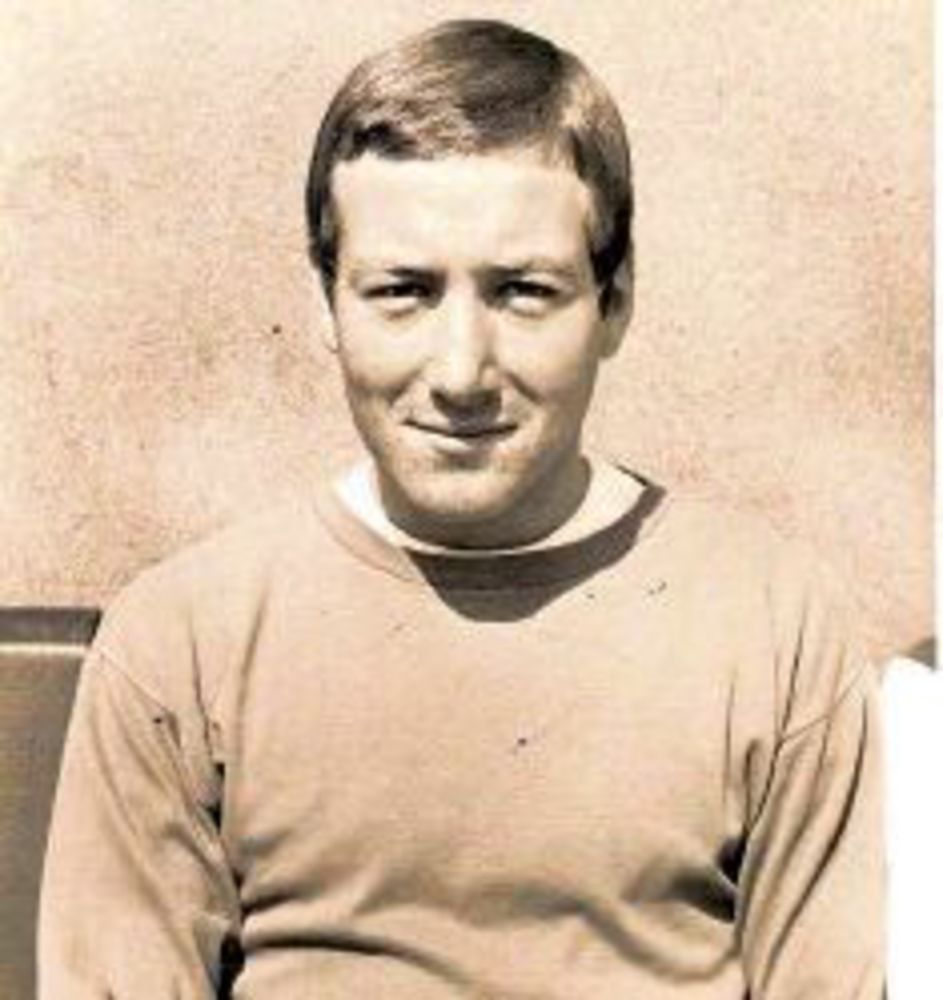
Dick Sheppard
Prevented from playing football until the age of 12, Sheppard recovered well enough to be signed by West Bromwich Albion in 1960, turning professional three years later.
He achieved his First Division breakthrough and played in the first League Cup Final to be played at Wembley, picking up a loser`s medal against Queen Park Rangers, but he never quite became established at The Hawthorns.
After playing 39 times for the Baggies, he returned to his home city and signed for Bristol Rovers in June 1969.
He became a firm favourite at Eastville, saving a George Best penalty at Old Trafford in 1972 helping his popularity!
In August of that year, Rovers contested the Watney Cup, played between the highest-scoring teams of the previous season, providing they hadn`t qualified for European competitions.
Rovers faced First Division Sheffield United in the final at Eastville and, following a 0-0 draw, Sheppard proved to be Rovers` hero in the penalty shoot-out, saving Ted Hemsley`s effort to seal a 7-6 victory.
Disaster struck for Sheppard, however, in January 1973 when he suffered a depressed fracture of the skull in a collision with a Tranmere Rovers forward at Prenton Park.
He was never quite the same again as his confidence took a knock.
He finished his Rovers` career with 151 games before becoming a partner in a local light industrial firm.
He had a season in the Southern League with Weymouth and then with former Western League side Portway Bristol before spending the final three seasons of his playing career with Paulton.
He sadly died, aged just 53, in October 1998.

Most clubs are looking for volunteers. Find out more on the button below:
www.PitchingInVolunteers.co.ukAll the news and results in one place.
REGISTER